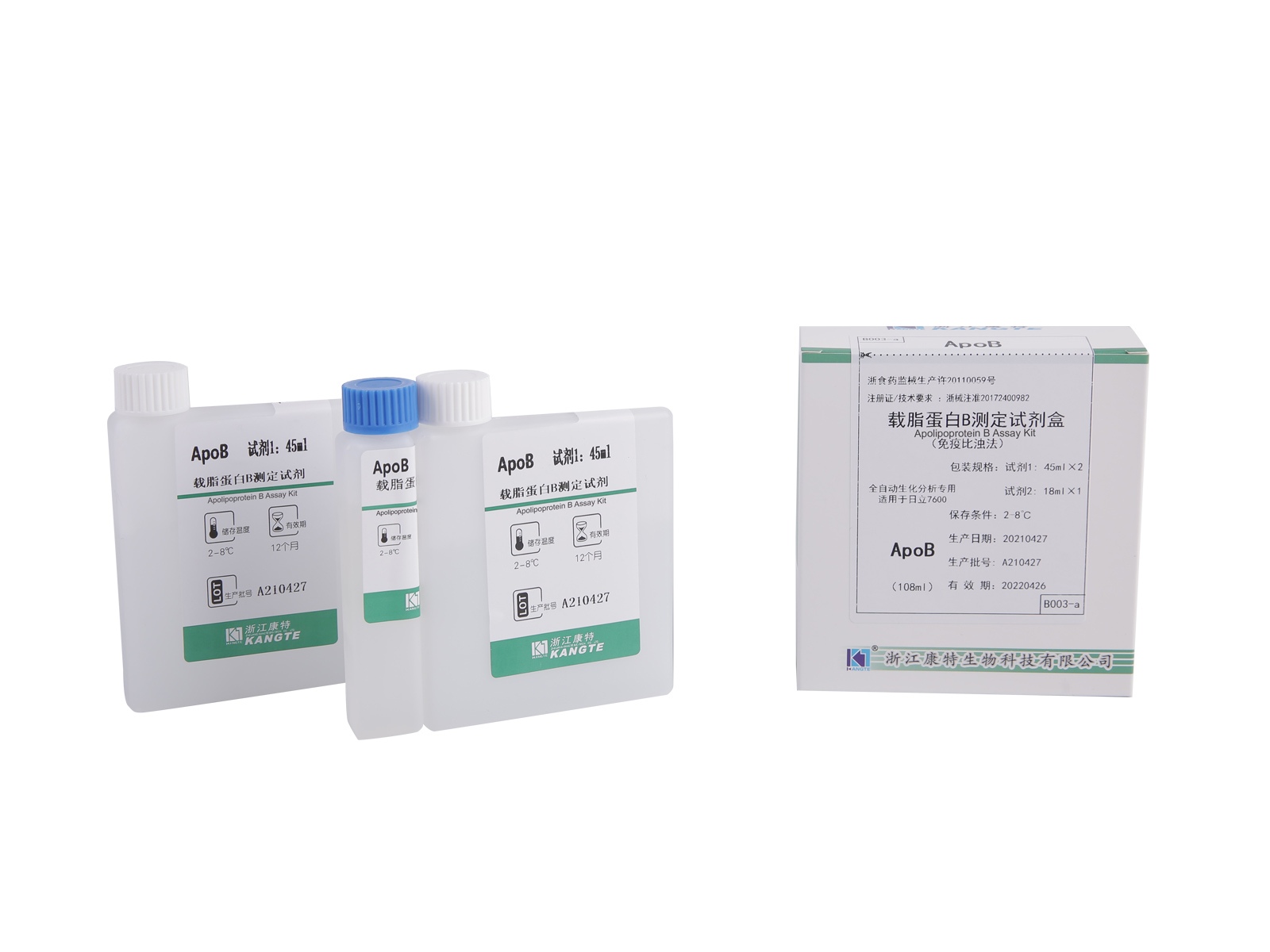Let us create a wonderful future together!
An Apolipoprotein B assay kit is used for the quantitative detection of apolipoprotein B in human serum. It is used as an auxiliary diagnosis for atherosclerosis and coronary heart disease. ApoB is a key determinant of heart disease and cerebrovascular diseases. Its presence in the serum of patients suffering from ischemia, myocardial infarction, or liver insufficiency is associated with increased risk for these disorders.
The Apolipoprotein B assay kit is supplied with all the reagents and instructions needed to conduct the assay. The apolipoprotein B assay kit contains sufficient reagents to perform up to 96 assays. It is also compatible with various biochemical analyzers, including semi-automatic instruments. It has been designed to be suitable for a wide range of applications.

Apolipoprotein B assay kits are available in many types, including immunoturbidimetric. They are primarily used for the auxiliary diagnosis of coronary heart disease and atherosclerosis. The use of apolipoprotein B in human serum is related to an increased risk for cardiovascular diseases, liver disease, and cancer. Increasing ApoB levels increases the risk for these diseases.
The apolipoprotein B assay kit is available from Kangte, where it is available with Next Day delivery. The test kit's stability is determined by the rate of activity loss, which should be less than 5% within its expiration date. The assay should be performed by the same user, regardless of whether he or she is an experienced biochemist or a novice. You should ensure that the assay is run in the same lab where the same sample was used.
The kit includes a reagent R1 and reagent R2 to detect apolipoprotein B in human serum. Reagent R1 consists of a buffer solution of 4-hydroxyethyl piperazine ethanesulfonic acid (HEPES), guanidine hydrochloride, decyl sodium sulfate, and polyethylene glycol 6000. Reagent R2 contains goat anti-human ApoB antibody-coated latex particles and a preservative.
The Apolipoprotein B assay kit is an enzyme immunoassay. It is used for the quantitative measurement of human apolipoprotein B in plasma and other biological fluids. The Human apolipoprotein B assay kit has a 96-well plate format and provides reagents for up to 96 assays. The Apolipoprotein B assay kits are available at Kangte Bio.
Apolipoprotein B assay kits can be obtained from a laboratory or pharmaceutical company. These kits should be stored under conditions that prevent the growth of pathogens or contamination. The Apolipoprotein B assay kit is available at a number of online pharmacies. Typically, apolipoprotein B assay kits contain enough reagents to perform 96 assays.
This kit uses an immunoturbidimetric method to measure apolipoprotein B in human serum. It is often used for auxiliary diagnosis of atherosclerosis and coronary heart disease. Inflammation and liver disease are linked to high levels of apolipoprotein B. An ApoB assay kit is available at most drugstores and can be ordered online. It is easy to use and offers a wide range of applications.
Suitable for a range of applications, the apoB assay kit can detect apolipoprotein B in serum and plasma samples. The Apolipoprotein B assay kit can be purchased online from the website of Kangte. It is stable at 2-8 degrees Celsius. The reagents are essential for detecting apolipoprotein B. If your re-testing is required, you can purchase a new apoB assay kit for your laboratory.
The kit is designed for quantitative apolipoprotein B analysis in human serum. It is intended for research purposes only. It should not be used in diagnostic procedures. However, it is an excellent choice for qualitative and quantitative apolipoprotein B assays. The reagents are inexpensive and easily available. Apolipoprotein B assays can be obtained from samples of any age and are available commercially.
An apolipoprotein B assay kit differs from EMULGEN 709 in example 1. Rather than trehalose, glycerol, and sodium decyl sulfate are used in apolipoprotein B assay. They differ from each other in two ways. The first difference is in the pH of the reagents. The second is the concentration of apolipoprotein B.



